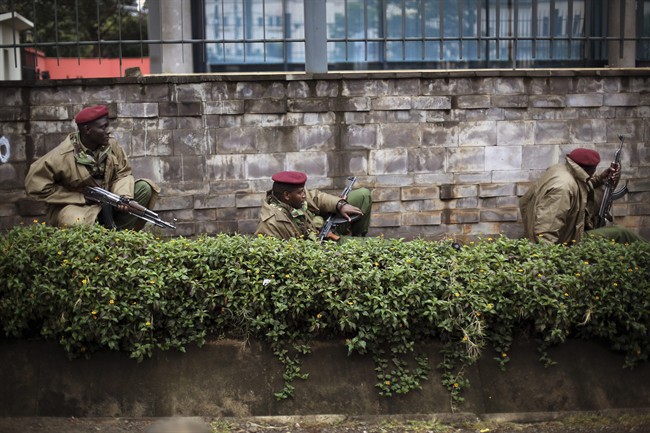THE HAGUE, Netherlands – In an unprecedented decision, judges at the International Criminal Court excused Kenya’s deputy president from his crimes against humanity trial Monday for a week so he could return home to help deal with his nation’s mall hostage crisis.

At a hastily arranged hearing, Presiding Judge Chile Eboe-Osuji said William Ruto could leave on a morning flight to Kenya. The hearing was quickly halted and Ruto was rushed to the airport.
The hostage crisis that began Saturday at Nairobi’s upscale Westgate Mall has killed dozens of people. More gunfire erupted Monday at the mall, indicating that the siege was not over even after the military said it rescued “most” of the hostages being held captive by al-Qaida-linked militants.
Ruto is the first such high-ranking politician to go on trial at the court while still in office. Even before his trial started this month, his defence lawyers had asked judges if he could stay in Kenya for much of the trial to attend to his duties as deputy head of state. Trial judges allowed the move, but prosecutors appealed the decision, saying Ruto should be present.
Prosecutors did not object to his returning home Monday.
As he left the court building, Ruto said the crisis underscored his problems attending the whole trial.
“We hope that some people will begin to contextualize what is going on and begin to appreciate the challenges Kenya is going through, the region is going through and the complications that are brought by what is going on here,” Ruto told reporters.
Ruto is on trial in The Hague charged with crimes against humanity for allegedly orchestrating violence in the aftermath of Kenya’s 2007 presidential election. He has pleaded not guilty.
Eboe-Osuji expressed the court’s “deepest sympathy to the victims and their families and friends and all of Kenya in this most difficult time.”
Ruto’s lawyer, Karim Khan, told the court his client had to be back in Nairobi to help President Uhuru Kenyatta deal with the terror attack.
“The world would have found it intolerable if the president and vice-president of the United States were not in the country after 9-11,” Khan told judges. “Well, this is Kenya’s 9-11.”
Judges adjourned Ruto’s trial for at least a week to cover his absence. Later this year, Kenyan President Uhuru Kenyatta also goes on trial in The Hague charged with involvement in postelection violence.
Kenyatta’s lawyers on Monday filed a motion asking judges to excuse the president from attending all but opening and closing statements in his trial and the final judgment.



Comments